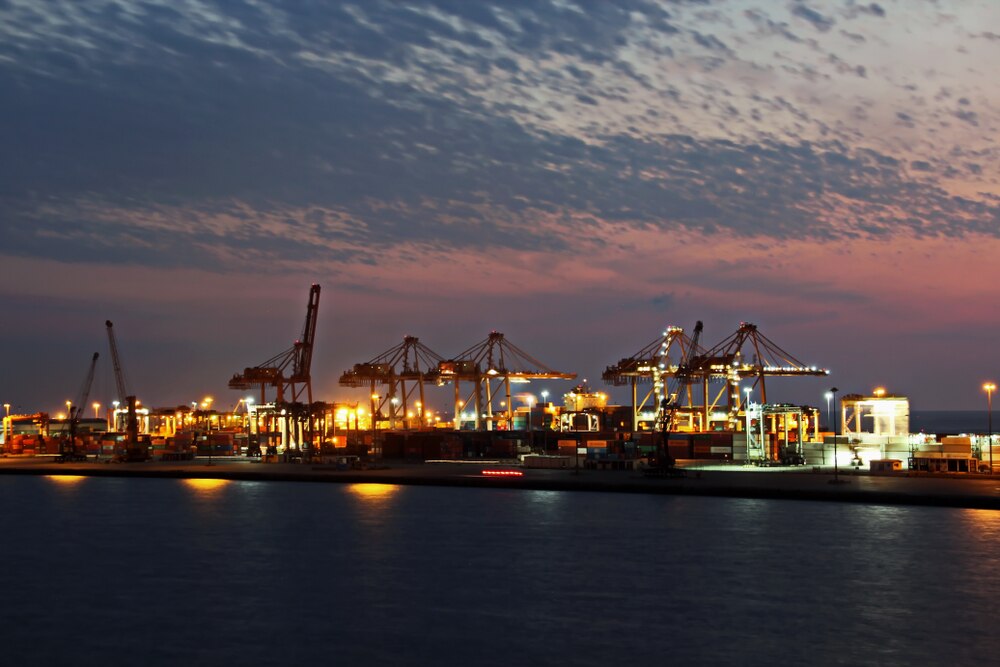Saudi Arabia’s General Authority for Statistics (GASTAT) reported that the value of non-oil exports, including re-exports, reached SAR27.5 billion in August 2024, up from SAR25.6 billion in August 2023. This represents an increase of SAR1.9 billion, or 7.4 percent.
Decline in oil and merchandise exports
The authority’s International Trade Bulletin for August 2024 noted that oil exports amounted to SAR65.3 billion, a decline from SAR77.3 billion in August 2023, reflecting a decrease of SAR12 billion, or 15.5 percent. Additionally, total merchandise exports fell to SAR92.8 billion in August 2024, down from SAR102.9 billion the previous year, indicating a drop of SAR10.1 billion, or 9.8 percent. In contrast, merchandise imports for the Kingdom reached SAR64.8 billion in August 2024, compared to SAR67.4 billion in August 2023, a decrease of SAR2.6 billion, or 3.9 percent.
Logistics sector transformation
The logistics sector in Saudi Arabia, under the leadership of the Ministry of Transport and Logistic Services, is undergoing a significant transformation aimed at enhancing the Kingdom’s vital role in global trade. This initiative utilizes advanced technologies to foster sustainability while incorporating state-of-the-art infrastructure and transportation solutions.
Strategic trade corridor
In a recent statement, Assistant Minister of Transport and Logistic Services Ahmed AlHassan highlighted Saudi Arabia’s strategic position as a trade corridor connecting Asia, Africa, and Europe. Through Vision 2030 and the National Transport and Logistics Strategy, the Kingdom aims to solidify its status as a global logistics hub, as reported by SPA.
Read | Saudi Transport Authority: Over 85 million postal shipments delivered in H1 2024
Advancements in port operations
Furthermore, Saudi Arabia’s ports have made impressive strides, ranking 15th globally in annual container handling as of August 2024. Three Saudi ports were featured in the Lloyd’s List One Hundred Ports 2024, underscoring the country’s growing influence in logistics and its commitment to economic development.
Surge in logistics investment
Investment in the logistics sector is thriving, with new business registrations soaring by 76 percent in the second quarter of 2024, making logistics the fastest-growing sector in the Kingdom.
Inflation trends
In terms of inflation, Saudi Arabia maintained an annual rate of 1.7 percent in September 2024 compared to the same month last year, amidst a 9.3 percent rise in the costs of housing, water, electricity, gas, and other fuels, coupled with a 0.8 percent increase in food and beverage prices. GASTAT’s latest report also indicated a 3.3 percent decline in transportation costs.
Slight increase in inflation rate
In September 2024, inflation saw a slight uptick of 0.1 percent from August 2024, attributed to a 0.6 percent rise in the prices of housing, water, electricity, gas, and other fuels, as well as a 0.8 percent increase in actual housing rents.
Housing costs impact
House rents experienced an 11.2 percent annual increase, while apartment rental prices rose by 10 percent. This surge in housing-related costs significantly influenced last month’s inflation rate, reflecting the substantial 25.5 percent weight these categories hold in the annual calculation.
Food and beverage price changes
Additionally, prices for food and beverages rose by 0.8 percent year-on-year, driven by a 5.2 percent increase in vegetable prices. The restaurant and hotel sector saw a 1.7 percent rise, largely due to a 1.5 percent increase in catering service prices. The education sector also experienced a 1.6 percent uptick, attributed to a 3.8 percent rise in fees for intermediate and secondary education. Conversely, prices for furnishings and home equipment dropped by 3.7 percent, while clothing and footwear prices decreased by 3.2 percent. Transportation costs fell by 3.3 percent, influenced by a 4.5 percent decline in vehicle purchase prices.
Wholesale price increase
In a related report, GASTAT revealed that wholesale prices in Saudi Arabia increased by 3.1 percent year-on-year last month. The rise in wholesale prices was primarily driven by an 8 percent increase in the prices of other transportable goods and a 12 percent rise in basic chemical prices. Refined petroleum product prices also saw a 12 percent increase. On a monthly basis, wholesale prices rose by 0.3 percent, with other transportable goods prices increasing by 0.9 percent, influenced by a 9.6 percent rise in basic chemical prices.
For more news on logistics, click here.




